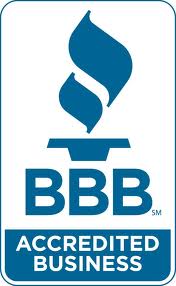Bankruptcy
GENERAL COMPARISON OF CHAPTER 7 AND CHAPTER 13 BANKRUPTCY
Who Should File Chapter 7 Bankruptcy?
Typically, Chapter 7 works best for people who:
- Have a lot of credit card and medical debt. Bankruptcy is designed to completely eliminate unsecured debts like credit card and medical bills. Typically, it works quickly, meaning you don't have to wait years for a fresh start.
- Are receiving collection calls and notices. Bill collectors usually don't just go away. In fact, as your debt becomes older, they sometimes get more aggressive in their collection efforts. Once you file Chapter 7, collectors are legally prohibited from contacting you. They must deal with the bankruptcy court instead. Finally, those calls and letters will stop!
- Do not own much property. Chapter 7 property protections vary according to state laws, but, generally speaking, Chapter 7 offers less protection for your property than Chapter 13 bankruptcy. However, Chapter 7 exemptions may allow you to keep your home, car and other valuable items like work tools, furniture, clothes, appliances, photos and books.
- Don't have enough income to pay off bills. In order to qualify for Chapter 7 bankruptcy, you must pass the means test. We can help you with this test, which looks at your income and debts to determine true need.
- Possess below-stellar credit. It's true that bankruptcy affects your credit score. But if you already have a low credit score, that may not matter much. It usually stays on your report for 7-10 years, but after you discharge your debt, you can work to improve your score during that time. It is certainly possible to get auto or home loans during that 7-10 year period.
Frequently Asked Chapter 7 Bankruptcy Questions
- Can I File Chapter 7? - Are you eligible to file Chapter 7? Laws passed in 2005 set eligibility requirements for potential filers. In order to file, you must meet certain criteria, including passing the Chapter 7 means test. After you pass the test, you will also need to complete a credit counseling course.
- What is The Chapter 7 Means Test? - The means test isn't like the exams you saw in school. Learn how this measure of your debts, income and assets affects your ability to file. The rules for the means test vary by state, and we provide some quick tools to give you a better idea if Chapter 7 may be able to help you.
- How Long Does Filing Chapter 7 Take? - Although Chapter 7 is typically one of the fastest acting forms of debt relief, there are still many steps and stages, each requiring you to complete processes, filings or meetings.
CAVEAT AND DISCLAIMER
These materials have been prepared by McCarty Law Office, PLC for information purposes only. These materials do not constitute legal advice and cannot be relied upon by readers for their particular circumstance. Receipt of this information does not create an Attorney-Client relationship.

